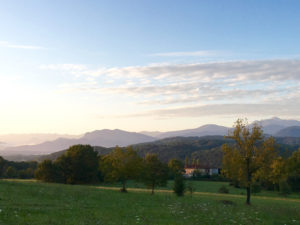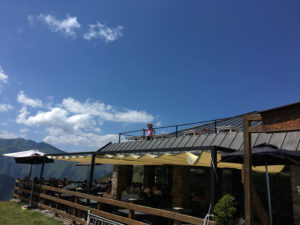
The UK government has finally published its white paper on the relationship it foresees with the EU after Brexit. The Connexion has summarized the key points relating to Britons in the EU both current and future:
The aim of the white paper to achieve an outline of intentions to be attached to the exit agreement and to form the basis of further agreements to be signed during a transition period. The approach detailed in the paper gives mixed messages for the British expatriate community in the EU however, because while it seeks to maintain certain key benefits for Britons who move to the EU in future, at the same time it is likely to make it harder for them to move.
The paper also makes a reference to those Britons who already live in other EU countries before the end of the planned Brexit transition period, whose rights are dealt with in the exit agreement, saying that the UK will seek to secure their ‘onward movement opportunities’. This refers to their ongoing right to live and work
The proposals in the document are likely to be discussed as EU/UK negotiations resume this week, with EU negotiator Michel Barnier set to make a statement on 20th July.
Restricting free movement
The white paper says Britain wishes to “end free movement, taking back control of the UK’s borders” and “giving the UK back control over how many people come to live in the UK”. It confirms that the UK government wants to “control and reduce net migration”. It repeats a phrase from previous UK government statements that the country will “want to continue to attract the brightest and best” and says the UK will pass immigration laws setting out how those “from the EU and elsewhere can apply to come and work in the UK”.
There should be “reciprocal arrangements” that “support businesses to… move their talented people”, it adds. While not stated explicitly, the implication of such an emphasis is that lower-skilled people (or whose skills are not considered to be in demand) or those who do not plan to work may find it harder to come to the UK than now, which, if it goes ahead, might be reciprocated by the EU.
Meanwhile the white paper says there should be visa-free travel for EU citizens wanting to come to the UK for tourism and temporary work, and mobility should be ‘facilitated’ for students and young people wanting to study in universities and benefit from ‘cultural experiences’. (Visa-free travel for tourism is what has been expected, but it would not dispense Britons from having to make an online ETIAS application for permission to travel from 2021).The document also expresses a wish that the UK should continue to participate in university exchanges via the Erasmus+ scheme.
Anticipating possible delays at borders when Britons are no longer EU citizens, it says that there should be ‘streamlined border arrangements’, such as those it says the UK already has with certain ‘low-risk non-EU countries’ like the US and Japan, so there may be a ‘smooth passage’ for Britons going to the EU for business or holidays.
Maintaining benefits
One positive point is that it says the UK will seek reciprocal arrangements on certain social security matters to help those Britons who want to work or retire to the EU in future years. It says this could include maintaining pension uprating as well as pension ‘aggregation’ rules for those who have paid into several countries’ systems. It adds there should be reciprocal healthcare cover for state pensioners and expresses a wish for continued participation by the UK in the EU’s EHIC health card scheme for travellers.
Workers should continue to only have to pay social security contributions in one state at a time, it says.
It also calls for ‘ambitious provisions on the recognition of professional qualifications’, which it says is especially relevant for healthcare, education and the veterinary, agriculture and food sectors.
Other matters
The white paper also covers other matters, such as trade and security cooperation, proposing that the UK should sign an ‘association agreement’ with the EU, have a ‘free trade area’ for goods and continue to participate in structures such as Europol. It suggests a ‘joint committee’ for the resolution of disputes.
It says there should be new arrangements on services, providing regulatory flexibility, but acknowledges that the UK and EU will not have the current levels of access to each other’s markets. It proposes there should be arrangements for the financial sector that “preserve mutual benefits of integrated markets and protect financial stablity”, although they “could not replicate the EU’s passporting regimes”.
Thank you to The Connexion for the update and I will post more details as and when they become available. In the meantime, if you have general questions about buying property in France or moving to France, please get in touch: nadia@foothillsoffrance.com
Like this:
Like Loading...









You must be logged in to post a comment.